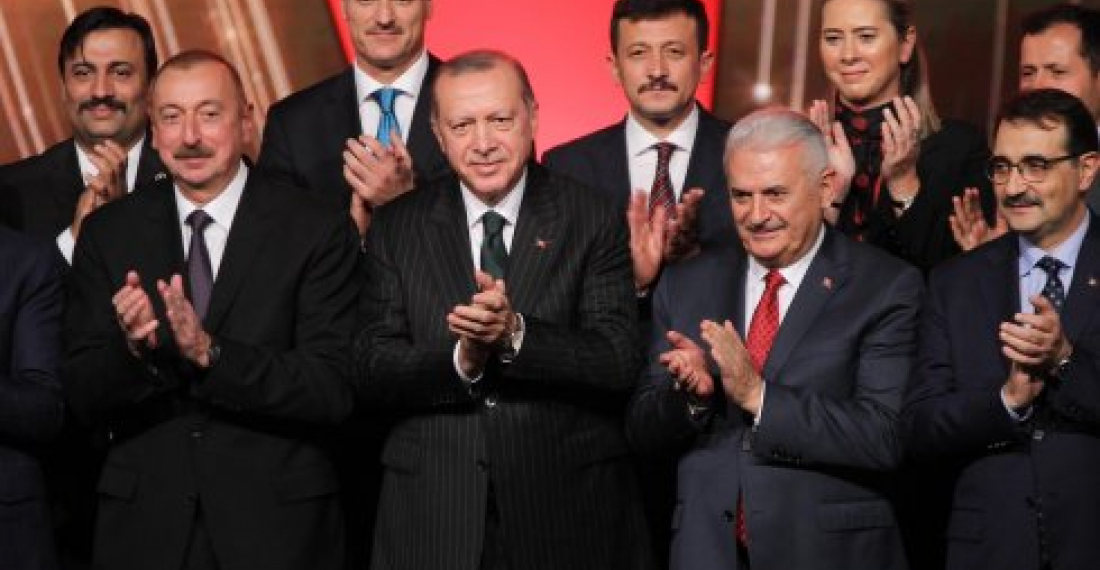The first new oil refinery to be built in Turkey in 30 years has opened in the Aegean city of İzmir by Azerbaijani oil company SOCAR in a ceremony attended by Turkish President Recep Tayyip Erdogan and his Azerbaijani counterpart Ilham Aliyev.
The USD 6.3 billion Star Refinery will help cut Turkey's dependence on imported refined oil products. It will also boost Turkish refining capacity by 30 percent.
"In opening Star Refinery, Turkey and Azerbaijan will take brotherly strategic ties to the next level," Erdogan said during his speech, adding that this refinery was "the largest greenfield investment in Turkey of the last 30 years."
"This refinery will enable Turkey to make $1.5 billion savings on an annual basis," he noted, adding that more than 1,100 jobs would be created at the refinery.
Aliyev said bilateral relations between the countries have been at the highest level, adding that this was quite normal for people who have been together for centuries.
He also noted Turkey and Azerbaijan showed a strong political will in drawing an energy and transportation map of Eurasia.
"Our signatures take place under these maps, which require big investments," Aliyev said, signaling new investments together with Turkey.
source: commonspace.eu with Hurriyet Daily News
photo: President Aliyev of Azerbaijan and President Erdogan of Turkey at the opening of the new STAR refinery in Izmir







